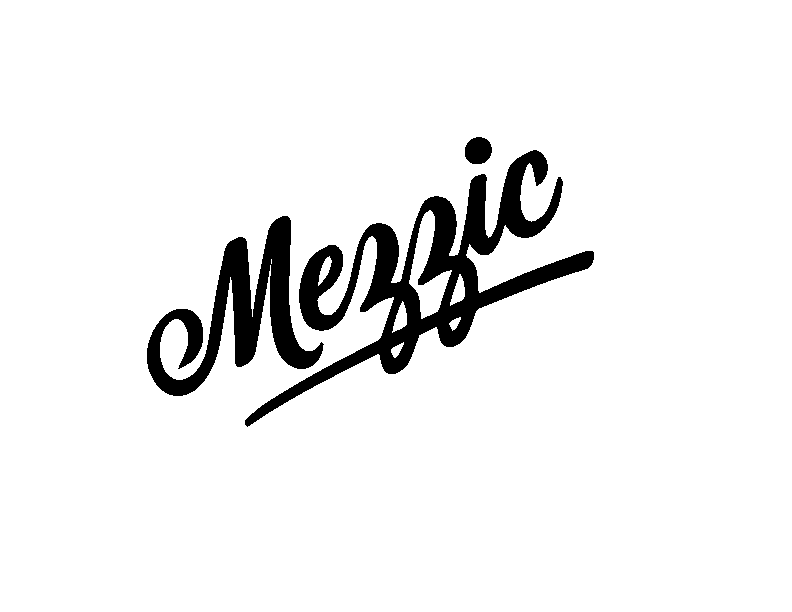
INTERVIEW: THE LIBRARY IS ON FIRE (BROOKLYN)
Coincidence has a unique way of coming around. Last December, I was told to check out a documentary on Basquiat. Two weeks later and one documentary watched, a band came across with a single entitled with his renowned last name. And following singer/guitarist Steve Five and I’s conversation about his group The Library is on Fire, their upcoming album, and art and classic music of the ’60s and ’70s, two days later a recommendation he made came up in another discussion with someone else. It was more than a sign that The Library is on Fire was meant to cross paths with their collage blend of vintage rock and punk that concurrently remains as timeless yet current as ever. The Brooklyn band’s latest album, Works on Paper, is out today!
What is Library is on Fire been up to to this point in New York recently?
Steve Five: The new record, Works on Paper. We’ve been working on that a while now. It’s actually taken far too long to come out. We were on a label. They put our last record out, and that was all fine and good. They said they would put this one out. We started making it and they said they didn’t have enough money to put it out. So we were stuck in a holding pattern for a while now.
We’ve been writing songs and playing shows in NYC for the past year since our last record came out in 2010. We’ve been trying to stay busy. Ever since the band started about four years ago, we’re pretty active at least with writing music. I like to keep things fresh.
We have a pretty standard work ethic, well maybe more than most bands. I liked how in the 60s a band would release an album every six months. I wish we could do that, but the business side of things always moves way slower than the creative side of things.
You have a lot of old influences that you can hear throughout the album. How are you trying to balance what you hear with trying to keep something fresh or new? How do you juggle that?
A lot of the songwriting nowadays…there’s not a whole lot of message that goes into things. It doesn’t seem like a lot of bands care about saying anything. For me, hearing some of those older pop and rock songs from the ’60s and ’70s have that run of the mill love song thing going. But there’s a lot of other more interesting things that would get tackled with some more obscure music. I like a lot of singles. There’s very few bands that have their whole catalog being amazing.
I think that those sorts of ideas aren’t represented in contemporary music as much. There’s a lot of ephemeral stuff. There seems like there’s a lot of bands that come out nowadays, like oohs and aaahs but not much of a message. I think that having a message is a fresh thing, even if the songwriting style we take on any particular song may be conventional.
With “They Don’t Know You (Like I Know You),” it sounded conventional at first until you listen to the lyrics more closely. They’re really satirical and hilarious, and hooks you quick.
That’s one of those songs where it has a conventional pop structure and a main melody. A lot of times, I don’t like to get bored with the music I listen to. So it’s sort of the same with writing music. If I feel something has been tackled already, even if it’s a chord change or melody or lyrics, it’s like if it’s something trite, I get bored really quickly.
A song like that…I was trying to convey a particular state of mind or feeling. It’s basically about a jilted past lover, but it’s also pointing the finger back at myself. In some ways, that song could be about my own shortcomings as a friend or in relationships. It’s kind of funny because somebody had likened that song to one that John Lennon wrote that people were saying it was about Paul McCartney. In an interview, he said it was more about himself and whatever relationship he had and pointing the finger at somebody else. It’s kind of odd, because that was kind of a similar situation. People probably think I’m being jilted. But it’s more about my own shortcomings than about any relationship I’ve had.
There’s no real, for certain tone to the song that really says it’s directed towards someone externally or internally.
I’m glad that you noticed that because I think that’s a good…when a songwriter is able to pull that attribute off. When somebody can write a song that seems specific and universal at the same time, I consider that to be pretty successful. It means other people can relate to it in a personal way, but taps into something on a larger scale. Thanks!
Relatedly it pulls off what an artist tries to do. It seems like The Library is on Fire is both influenced by vintage music, but also art with Basquiat the single, Rothko, and the album art.
Visual art is something I have definitely used fanatically in the songwriting and just in the different sorts of mediums that you have for the aesthetics. I guess the whole concept, if you wanted to call it that, for the album is…I thought it’d be funny that, I came up with the title Works on Paper, and the idea for the album cover…it’s sort of a joke that I maybe took too far. The title is Works on Paper, but it’s a collection of songs made on a CD. The album cover is a photograph of an oil painting, so it’s giving all these different artistic mediums that never quite hit the mark. There’s Works on Paper and then an oil painting on the cover that misrepresents the title, but in actuality it’s a collection of songs on a CD. It’s something I thought was funny that I probably took too far. [laughs]

It may be a little bit more explicit this time around. Our predilection towards visual art and different creative people as opposed to other musical influences that we may have. That’s what I’ve been concerned with ever since the band started was pointing to our influences regardless of what artistic medium they come from. I have a lot of obscure tastes so I don’t know how easy it is for people to see that we’re pointing at some of our influences but it’s everywhere in our music and our lyrics.
Who did the oil painting on the album cover?
I did the painting and then we hired a friend of ours to take the photograph. I had the idea for the painting before I made it. Our last record I did the cover as well, but it was a cut-up magazine collage. I did it more out of necessity out of anything else. I guess I could have found somebody else to make the art but I had a specific idea in mind. The esthetic, the sterile white look.
Was there any reason you had the electric outlet in there as well?
That was another idea because the LP back cover has another electric switch plate. The idea is a blank canvas. There are a couple of reasons why I put that in there. Number one, to give an idea of the scale of the painting. There’s also two plugs; one white, one black. I guess it was the idea of using the wall that already had those there and using that as a metaphor for certain types of good energy or bad energy. In a way, the album has a couple different layers but survival is one of those themes that runs throughout the album. Being able to transcend difficult aspects of different events that artists and people who are creatively sensitive have to deal with….For instance, Basquiat was a victim of a heroine overdose and Rothko committed suicide. At the same time, there’s the trilogy of songs “Hypnos Waking” and “Hypnos Returns” that reference the French war poet, René Char, who coined the phrase ‘the library is on fire’ for a poem that he wrote. He was a leader of the resistance in France during World War II. He has a collection of his notebooks called “Leaves of Hypnos.” I was using his story as a metaphor for having to endure hardships. There’s certain things about it like the idea about depression and drug use, and survival through those darker aspects of the human experience.
So Basquiat…
He was pretty awesome. He was kind of a cocksure young lad [laughs] but he definitely had a brightness to him. That’s what I think people latch on to-his overwhelming energy and spirit. It’s like Kurt Cobain, where they have it brimming out of them. I once heard someone liken Jimmy Hendrix to a fuse that has too much electricity running through it. I feel like it was how Basquiat, like Kurt Cobain, was one of those people that have almost too much coming out of them for this world.
Did you realize in advance that Perry Margouleff’s uncle was a resource for The Factory given the single’s title?
Oh really? I didn’t know that until now. I know that his uncle [Robert] was one of the guys that build the Tonto synthesizer which Stevie Wonder used on “Superstitious” and “Living for the City.” His uncle was a record producer and still is out in California. He’s part of the whole ’60s and ’70s rock thing. I know that Perry at one point was playing with the ’60s psych band, The Pretty Things. He has a lot of friends. On our “Fly Sucka on the Score,” which is sort of a disco song that we wrote was mixed by Pierre de Beauport. He’s Keith Richard’s guitar tech and right hand man for the Rolling Stones. He co-wrote a song with the Rolling Stones, and he was one of the only people who’ve ever done that. So I wouldn’t put it pass Perry to be part of that scene or The Factory. He isn’t really too much of a name-dropper.
When we first went up to record at his studio, he deals in rare and vintage guitars and had just been hired by Jimmy Page to find some guitars. He was bringing in these guitars for Jimmy Page at the time.
When you’re doing something creatively, if it’s right then those sort of things coalesce. I’ll have to ask him about it.
What was it like being at Pie Studios being around all that classic equipment?
It was an experience. I immediately recognized something very singular and rare. He pulled out David Gilmore’s custom amp from 1970. It was probably the best sounding amp I had ever played. I was humbled in the presence of all these different, amazing pieces of gear. It was kind of a really cool dream. It was also the first time working with Perry, so you always trying to get your sea legs, testing the water, working with a new producer. The last couple records, and even about half of this record, we did with Tobias, who with Robert Pollard was Guided by Voices’ producer. We’re very comfortable working with him. He’s got a very similar esthetic to us and knows what we want. It was a little different working with Perry, just because he’s got such a huge studio that has anything you could ask for. It’s just a different mix of personalities. He was really kind because we didn’t have a lot of money to spend on producing it. But he believed in the music enough to help us out with that.
I don’t know if it’s a situation that we’ll be able to pull off in the future, but for this record it was a great experience. The next record we might do on our own, DIY indie style. A total 180 from what we just did.
So you probably have a good amount of material ready with how long this has taken.
Yeah, well we released an EP on Bandcamp and did it ourselves. We do have songs for the next record that we’re still collecting and putting things together. The one thing that’s difficult at this point, not having a label or having other people who are working with us in our corner is that I have to spend a lot of my energy putting it out there. It’s tough. When a band does that themselves, they can easily spend more time and energy promoting themselves than they can on their own creative output. That can be a tough thing. I’ve seen it break bands up just because they’re trying so hard to socialize and network, and then when the time comes, they don’t have any energy left to be a band. For us, I try to keep myself in check and try to spend my energy on creative output as much as possible.
Would you share those tips to other people; keep yourself in check and keep creative?
Yeah. I would hope that any artist does it for the right reasons. I think it’s pretty easy to tell if they don’t. Devo once said on this TV show called The Men Who Make The Music in 1978, where they had this sketch saying, to paraphrase, “Artists and musicians are good looking guys and gals who couldn’t hold a real job. They make their art to perpetuate their selfish hopes.” Devo went on to be like, we ask your support for Devo to correct this situation from the inside out. That’s something I’m always hyper-aware of when a band is doing it for their own amusement as opposed to doing it for some sort of social gain. Of course, everyone wants to be recognized and that’s totally appropriate. But when the desire for fame outweighs the desire to make good art, then I think there’s something wrong.
That doesn’t happen too often, I just see it occasionally in the New York scene. There’s a lot of people who are really good at socializing, but not so good at writing songs. And then there’s the antithesis of that, which is like Nick Drake, who was a phenomenal songwriter but much too introverted to a fault-too insular-who wasn’t able to promote himself so he didn’t feel that he could. Look what happens there. He never receives any due credit in his lifetime, and all sort of things arise from that.
To wrap up and link to that, what was the last show that you saw that caught your attention and brought you back to why you like music and who was it in New York?
The last new band that I saw that I really liked was this band called Life Size Maps. They played a party for the record release that we had about a week ago. I had heard their music but had never seen them live. They were just really great live and their songs are really well-written. As far as new bands go, they were one of the bands that I really enjoyed. Over the summer I saw Guided by Voices, but I hadn’t seen the classic lineup that is touring right now. I didn’t think I would ever see them again. When they reformed, that was really cool. When I saw them perform, they performed songs I had never heard before because their catalog is so huge. I was wowed by that. That’s pretty cool that a band that has been around for thirty years still has the ability to really impress, even today.
Founder, Editor, Writer, Photographer. (Austin, Texas)




Post a comment